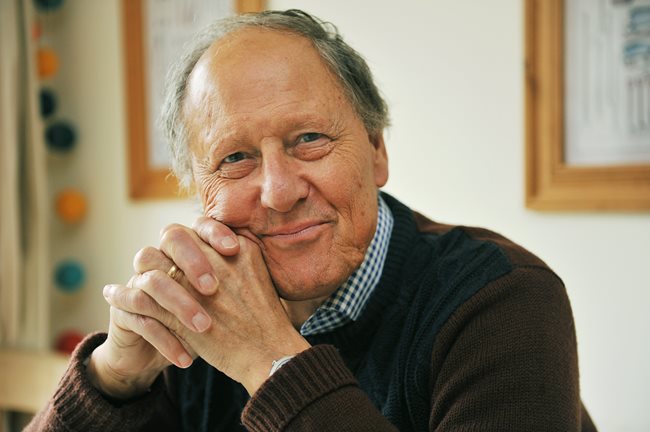Educational author Stewart Ross on the ups and downs of the profession and tips for educational writers starting out.

Pictured: Stewart Ross
Image copyright Brendan Corr
How did you come to write children’s nonfiction?
The answer is very simple. My previous career was teaching, and I accumulated vast files of O and A Level information. It was but a short step from these to my first children’s nonfiction books.
I had always wanted to write and when I met a Wayland publisher who said he needed a book on Christopher Columbus and The Age of Exploration, I jumped at the opportunity. To be honest, it was a pretty lousy book.
What do you think are the necessary skills for working in this sector?
- A strong feeling for words, which manifests itself in an ability to inform with lively clarity.
- Enormous energy – the work is usually poorly paid and the writer needs to produce a great deal in order to make a reasonable living. Forget the 8-hour day.
- A solid foundation in information gathering. I was fortunate to have been raised in the pre-internet world and therefore able to transfer primary source research techniques to the realm of Wikipedia. This has given me an instinctive wariness of quick-and-easy facts.
- An ability to work with editors who are under pressure to get everything for nothing.
- A genuine love of children and education. Visit schools regularly.
- Flexibility – book styles change over time and an educational writer had to change with them. Check the National Curriculum and exam board syllabuses annually.
What do you enjoy most about your work?
Playing with words and creating something out of nothing. Of course, it’s also wonderful when someone praises what one has produced.
What would you consider to be the main challenges currently facing educational writers, and what can be done to address them?
Low rates of pay. Quite simply, there are far more writers than there are pieces of text required, and not all publishers appreciate the work of a professional. The situation is made more difficult by academics and teachers willing to write for nothing in order to enhance their CV or research funding. I can’t think of any way this can be addressed other than a significant cultural change, which is extremely unlikely.
Coping with the wide variety of styles and approaches required by different commissioning bodies, e.g. some want jokey stuff, others want spicy snippets for the internet, others (especially in the US) prefer more traditional, carefully crafted manuscripts. The only way to address this is to stay on one’s literary toes!
As a result of financial pressures, editors frequently do not have time to check manuscripts thoroughly. Indeed, some packagers dispense with editors altogether, asking authors to edit their own work (!). This requires an author to be super careful and, if possible, find someone to go through their work for them before it is sent off.
Do you have any advice for those starting out in educational writing?
Think very, very carefully before committing yourself to this path full-time; network like mad; live somewhere with first-class internet connection; avoid getting stuck in an over-simplified world by keeping in touch with what is going on at the academic, higher-level in your subject; avoid the temptation of writing on every subject, even dinosaurs – amateurism always shows in the end. If you’re a scientist, stick to science, if you’re a historian, stick to history, etc.
Libraries are very much on our minds at the moment: Libraries Week took place in October, and articles celebrating the role they play in our communities and schools will be published in the upcoming Winter edition of The Author. What would you say to our future Government about the importance of adequate school library provision?
One of the most stimulating and effective schools I have ever visited was on an American airbase where they had just constructed a new school block. It was shaped like a wheel, with classrooms coming off like spokes from a central hub. The hub was the library/LRC, a continual reminder that the ultimate aim of all education is to equip students to think and research for themselves. This starts and ends in the library/LRC, the educational dining room where bright minds are continually fed.
About Stewart Ross
Stewart Ross is a prize-winning author of fiction and nonfiction for readers of all ages, with over 300 published titles. He has also written plays, librettos and a musical, and he teaches and gives workshops and talks.